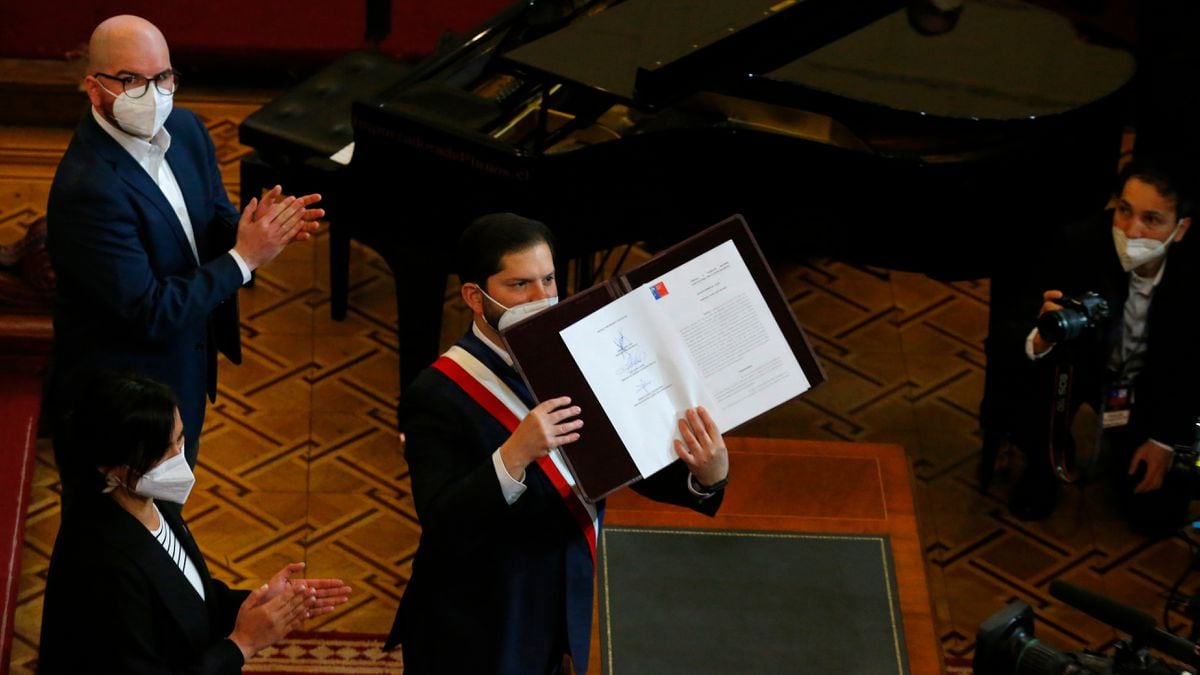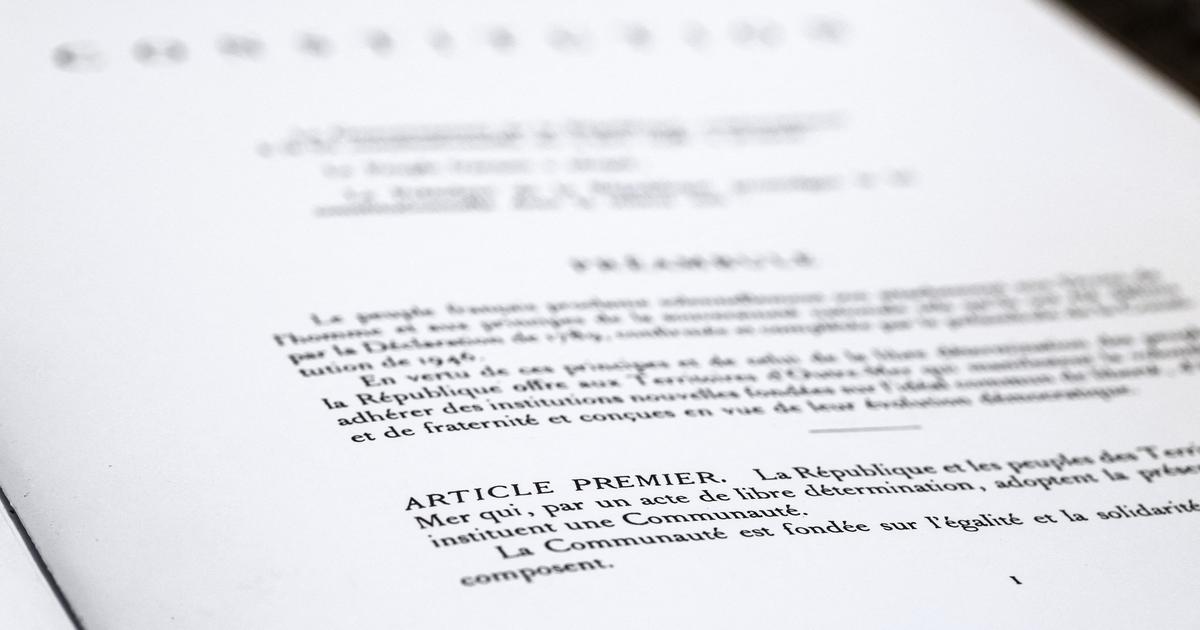After a year of work, the Chilean constitutional convention, made up of 154 members, presented this Monday the proposal for a new Constitution for the country.
As a symbol of a new era, it has been received by the President of the Republic, the leftist Gabriel Boric, in a solemn ceremony at the Congress headquarters in Santiago, the capital.
The text, which aspires to profoundly change the institutional framework, declares Chile as "a social and democratic state of law", "plurinational, intercultural, regional and ecological".
It defines the country as a "solidarity Republic" and characterizes its democracy as "inclusive and equal", in one of the main novelties of the Chilean text, which will be plebiscited on September 4 in a climate of great polarization of the citizenry.
In two months, more than 15 million people will have to vote in what will be the most important electoral event in the recent history of the South American country.
In his speech that closed the 110th session of the convention, a body that dissolves as of Monday, Boric was the convener and spoke of respecting different opinions, integration and cohesion.
As he usually does, he recalled one of those who preceded him, but this time he chose the Christian Democrat president Eduardo Frei Montalva (1964-1970), who as an opponent of the dictatorship of Augusto Pinochet called for a constituent assembly in 1980.
This process, for Boric, "will mark, without a doubt, history from here to the future."
“This Constitution, this draft Constitution and the plebiscite that will take place on September 4 are not and should not be a trial of the Government, but rather the debate on the future and destiny of Chile for the next four or five decades,” he assured in the search to distance the fate of the Executive – with a popularity of 33%, according to the latest Cadem poll – from the result of the constitutional referendum.
Although neutral before both options in the plebiscite - the alternative of
Approval
and
Rejection
-, Boric invited an intense debate and "not about falsehoods, distortions or catastrophic interpretations alien to reality", alluding to fears on the part of society Chilean with the new Constitution.
“Once again, it will be the people who have the last word on their destiny,” assured the president, who took office on March 11 and whose program contemplates a profound path of reforms.
The current Chilean Constitution has its origins in the military dictatorship.
At the end of the regime and in the 32 years of democracy, however, it has undergone important and numerous reforms, such as those of the socialist Ricardo Lagos, in 2005, who removed authoritarian enclaves and stamped his signature on the current text.
After the social outbreak of October 2019 in the right-wing government of Sebastián Piñera, where Chilean democracy was in danger, most of the political forces agreed on a constituent process to try to get out of the multiple crisis.
In October 2020, 78% of citizens expressed themselves in favor of replacing the Magna Carta and then, in May 2021, the election of the conventional ones was held.
Under rules of parity, seats reserved for indigenous peoples and an incentive for the election of independents outside the political parties, the convention was made up mostly of the left and identity groups, such as environmentalists.
The right barely won 37 seats.
"It is the most democratic and inclusive process that Chile has ever had," says the constituent Fernando Atria, one of the most influential voices on the left within the convention and very close to President Boric.
"It is the Constitution that Chile needs," adds the constitutional lawyer.
But his opinion is not unanimous.
The integration of the convention and the result of the text has mobilized not only the right, but center-left sectors that observe that the proposal "is bad and harmful for democracy in Chile," as Isidro Solís, who was Minister of Justice, puts it. of the first Government of Bachelet and lawyer of the family of the socialist.
“I will vote rejection with the same force and epic that we said
no
to Pinochet in the plebiscite of 1988″, says Solís in reference to the referendum that sealed the fate of the dictator.
The ceremony of this Monday, of a solemn and republican nature, has contrasted with that of July 4, 2021, where chaos marked the act of conformation of the assembly.
An example was the speech of the convention's vice president, Gaspar Domínguez, a 33-year-old independent doctor: “Whatever happens on September 4, Chile has already changed.
It is an impulse that was born and has become a reality.
The legacy of this process marks a new standard for this society in which it is already unacceptable to think, for example, of not having parity or popular participation,” Domínguez assured.
For the constituent, "the perfect Constitution does not exist and this is not the exception", but "it is a better toolbox to advance in these solutions".
With 355 articles, the text proposes representative democracy and reinforced with forms of direct democracy that the country has never known, decentralization and, together with parity and an ecological perspective -which cross the entire Constitution- a large number of social rights are guaranteed. .
The regulations that generate the greatest rejection are plurinationality –as occurs in the constitutions of countries in the region such as Bolivia and Ecuador–, indigenous territorial autonomies and the government system with a presidential regime and asymmetric bicameralism, which would represent the end of the Senate, with more than 200 years of history.
Two months after the plebiscite, whose campaign begins this Wednesday, various surveys show that the option of those who reject exceeds those who approve the text: 44.4% against 25%, according to the latest Pulse Citizen survey, although there is a large segment of undecided (30.6%, according to the same opinion study).
If the option of those who oppose the text were to win in the referendum, the current Constitution would continue to govern.
The political class, however, seems pushed to seek new reform alternatives, given the vast majority that in 2020 was in favor of changing the current text.
subscribe here
to the newsletter of EL PAÍS América and receive all the key information on current affairs in the region.















